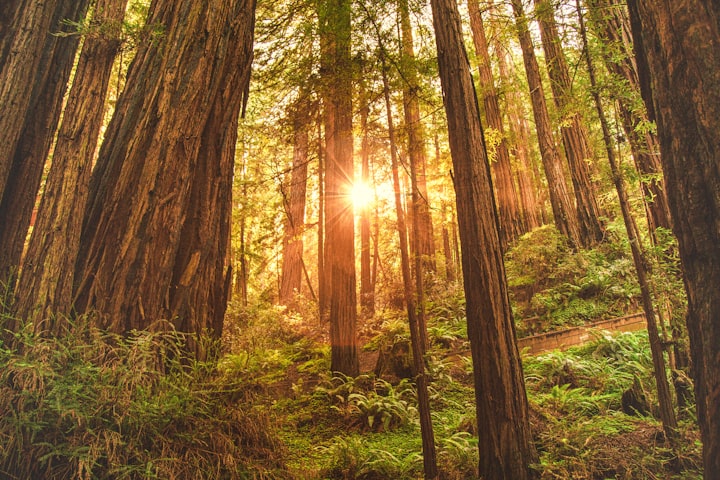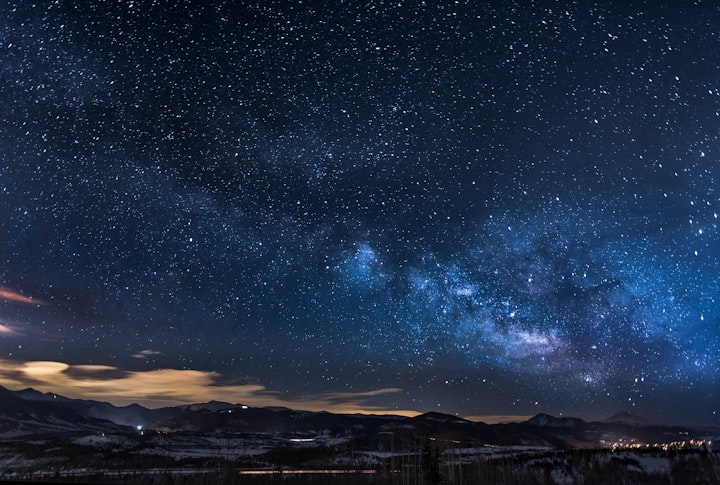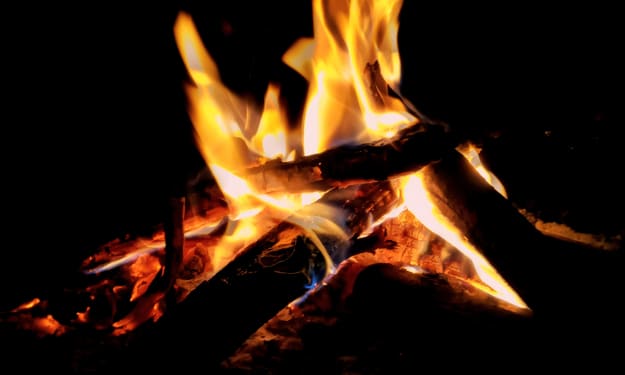In the Woods
and always returning to the woods

Heavy rains slapped into the canopy of hardwoods, and fell from leaf tips and spilled between cracks from freeze and sun scald in the bark. The ground was too saturated to take any more water, and the trickles found every low spot and downhill stretch, across and around duff and dead leaves and live and dead animals, until they hit the creeks and built over miles into purling streams and heavy rivers.
-
Charlie’s bedroom was very simple and spartan. Beige walls, popcorn ceiling, a desk with a chair, and a metal chaise pointed at a television. There was no decoration, other than a tired giclee print of a small river twisting through a wood, and a tiny teepee and some birchbark canoes on a sandy landing. The intention of the print was good, but it was a poor representation of a beautiful thing, and if you looked closer at the brushstrokes they were pixelated and shone with a plastic sheen and no life.
He was asleep and dreaming, seeing an endless, dark expanse with strings hanging down from above, making bright lines against a black and immense remoteness. His heart pounding, he watched one string slowly curl upwards on itself, like a singed hair, and as it did it touched its neighbor and caused it to snag. They both curled faster, touching and snagging until the frantic tangling and retreating was an unimaginably huge snarl that accelerated towards and past any horizon and it all overcame and overwhelmed him until he couldn’t cry or scream or try to get away. The only recognizable and familiar material there was those lines, and their disappearance left him standing in an empty, vacated void, looking around at nothing and realizing that the only substance there was his body and his mind. He cast his thoughts out, found nothing, panicked, and awoke.
Waking up with a start, Charlie sat up, closed his eyes, and counted his breaths until he had calmed.
He stared at the giclee print. “Forget that, I’m out.”
-
Long before, the day after Pearl Harbor, Charlie had enlisted in the United States Navy and was assigned as a carpenter on Washington’s Olympic Peninsula.
He reported for duty and quickly realized that the forts and embattlements being assembled were all poured from concrete and his only work was building forms for their pouring. He would work for a week assembling the form, knocking boards to posts under the cedars and pausing to look across the straits and bluffs. Trucks would trundle up through the forest, park on knolls, fill his forms, and grumble away again. Once the concrete had cured, he would knock away his forms, throw the material out of the woods and off a nearby cliff and into the water of the straits below.
The gray concrete forms were geometric and symmetrical. They physically fit the woods and bluffs exactly, but were inappropriate and out of place anyway. His forms put them there but his forms were gone and he would lay on the cool concrete and smell damp duff and look up at feathery foliage, and he knew that these forts were useless; the Japanese wouldn’t ever try to get to Seattle, and any soldier that died here would die of pneumonia from living in these wet, dark, unnatural concrete forts. They ran marching formations out in the sun and wind and trees, and slept in these damn caves.
-
Charlie packed his sheets, clothes, and his giclee print. He needed a tent, but hadn’t owned one since he left the Navy, so he stopped in Port Angeles at the Walmart and bought a cheap red one with a lantern logo. He had cashed out every account, sold everything in a yard sale, quit the job, and left quietly.
Outside of Boseman, Charlie had found a few acres of woods for sale by owner, and once he got there he sat in their shade listening and watching. There were caps on three sides that provided snowmelt, and though he could only see them here and there through the conifers, their enormity and permanence hung over the place. The river nearby was the only place that the woods opened up, allowing sunlight in to bake the rocky shore and bed, and from where he sat he could see it from his shade. It was a bright gash of noisy gurgle and rush of sound and shining grays and whites through the soft and quiet green of the trees.
He laid back, feeling his shoulders push into the soft mosses and pine needles as they settled. A heart-shaped leaf was at his right hand and he sighed and pulled lightly at it until the elastic veins popped and stretched. He brought the broken leaf to his mouth and tasted it. It was bitter and vegetal and he spat it out, but he liked it, and it was his. It had grown in his woods, anyway.
-
Each morning Charlie would wake, open his eyes to gauge the light, and close them again for a second with a smile and a sigh. The cabin that he’d built was hewn, hoisted, and notched by his hands, and all the gouges and marks were noteworthy to him. He steadied himself against the logs while he walked over to the wood stove, shuffled the coals, and set a big round on. The dented aluminum kettle got set on, and he stepped outside to sit and wait for the coffee.
Bright morning mist was still settled, and would stay until the late morning sun burned it away. Charlie closed his eyes and breathed through his nose, and he could feel the sharp humidity of the mist and the slight rise in the air foretelling the sun’s warmth. He could see the lines of sunlight on the insides of his eyelids, bright and red with blood and life, countless lines shining between trees and onto his face. For a long time he left his eyes closed and looked at them, waiting for them to move, but shifted unbelievably slowly across his face, finding cold spots and warming them and more lines would follow. The lines would cross him as long as the sun was up, and when the clouds or night came he could reach out and touch the trees, and their perfect, damaged bark. He could watch them change, a little at a time, and he could watch the water and light touch and move around them.
Charlie could stand among them, and look at them, and he could cast his thoughts out into them. Every time, he was surrounded by substance, and every time he heard and felt an uncanny and wonderful orchestra of silence.
About the Creator
Ezra Gardiner
I'm trying to hold onto memories and stories to make compelling tapestries
and I'm working on a series of prompts chosen to open me up to magical possibilities.






Comments
There are no comments for this story
Be the first to respond and start the conversation.